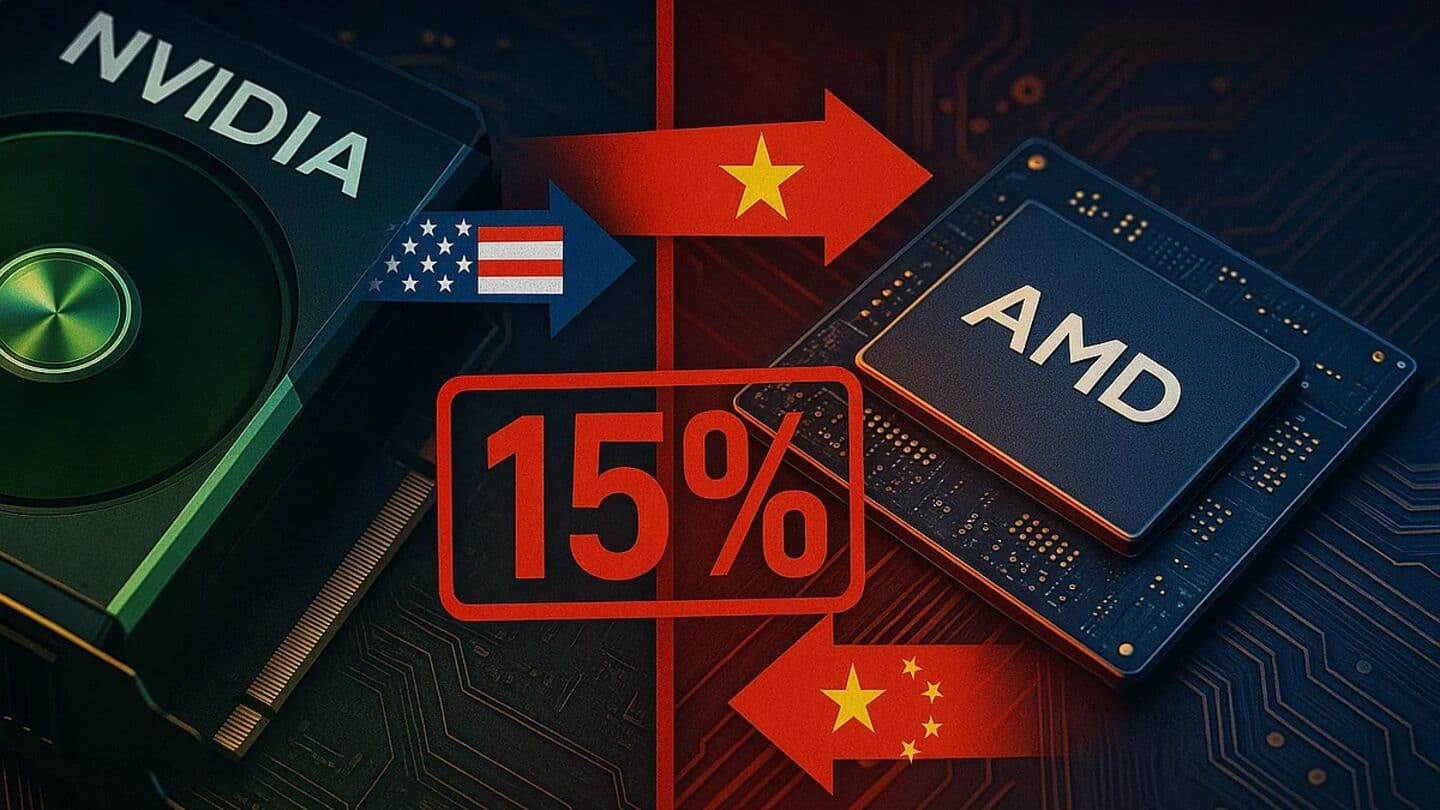
NVIDIA, AMD to pay 15% of China revenue to US
What's the story
NVIDIA and Advanced Micro Devices (AMD) have agreed to pay a portion of their revenue from certain chip sales in China to the US government. The deal, first reported by the Financial Times, is part of a striking arrangement with the White House. In exchange for 15% of their revenues from these chip sales, NVIDIA and AMD will get export licenses for selling their H20 and MI308 chips in China.
Tariff impact
Trump's tariffs impact global economy
The deal comes as President Donald Trump's tariffs continue to impact the global economy, highlighting the White House's readiness to make exceptions as a negotiation tactic. Last week, Trump had announced a 100% tariff on semiconductor and chip imports unless companies were "building in the United States."
Sales resumption
Halted H20 chip sales to China
The Trump administration had halted H20 chip sales to China in April. However, NVIDIA announced last month that the US government would allow the company to resume sales and hoped to start deliveries soon. A US official confirmed that the Commerce Department had started issuing licenses for selling H20 chips to China.
Market significance
Major market for both companies
China is a major market for both NVIDIA and AMD. In the fiscal year ending January 26, NVIDIA earned $17 billion from China, accounting for 13% of its total sales. Meanwhile, AMD reported $6.2 billion in revenue from China in 2024, which made up 24% of its overall revenue.
License conditions
Controversial deal raises national security concerns
The Financial Times reported that the chipmakers agreed to the revenue-sharing deal as a condition for getting export licenses for their semiconductors. A US official said the Trump administration didn't think selling H20 and similar chips was a threat to national security. However, Alasdair Phillips-Robins, former advisor at the Commerce Department under President Joe Biden, criticized this move as trading away national security protections for Treasury revenue.